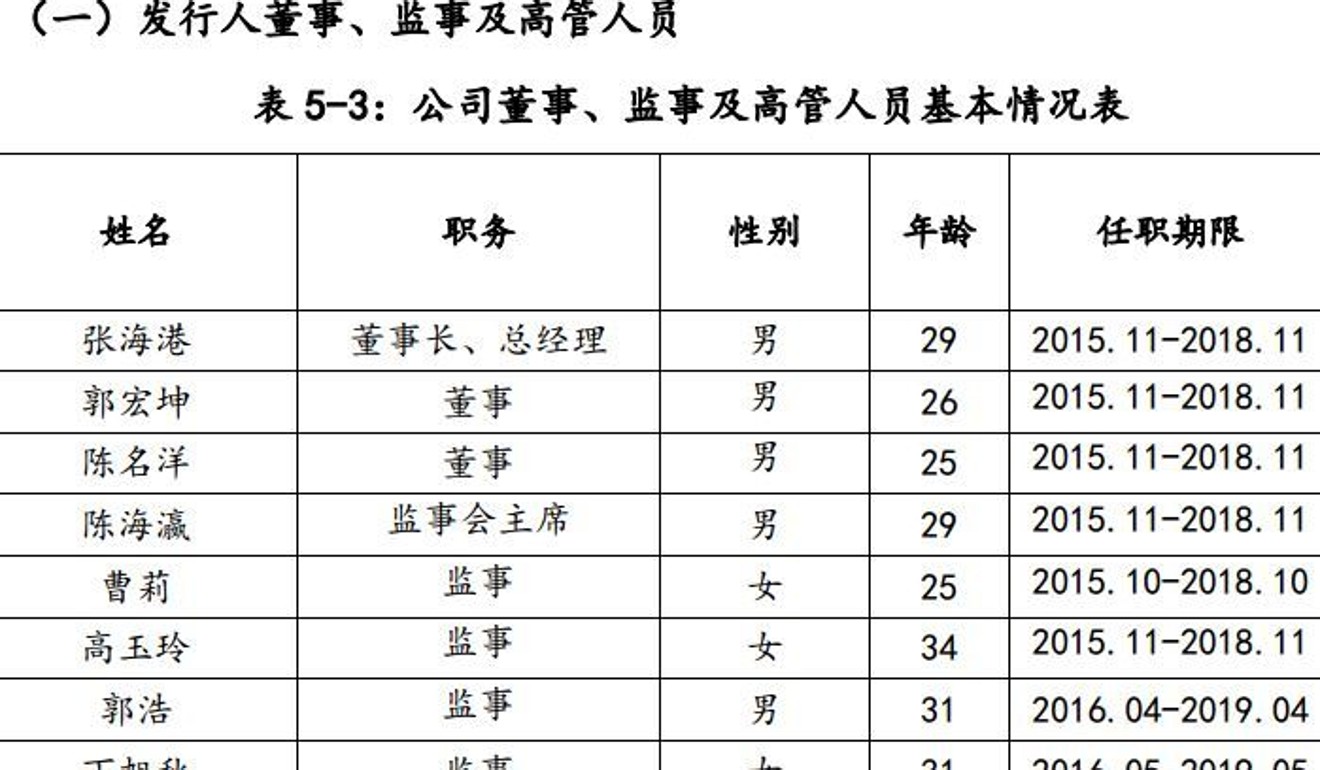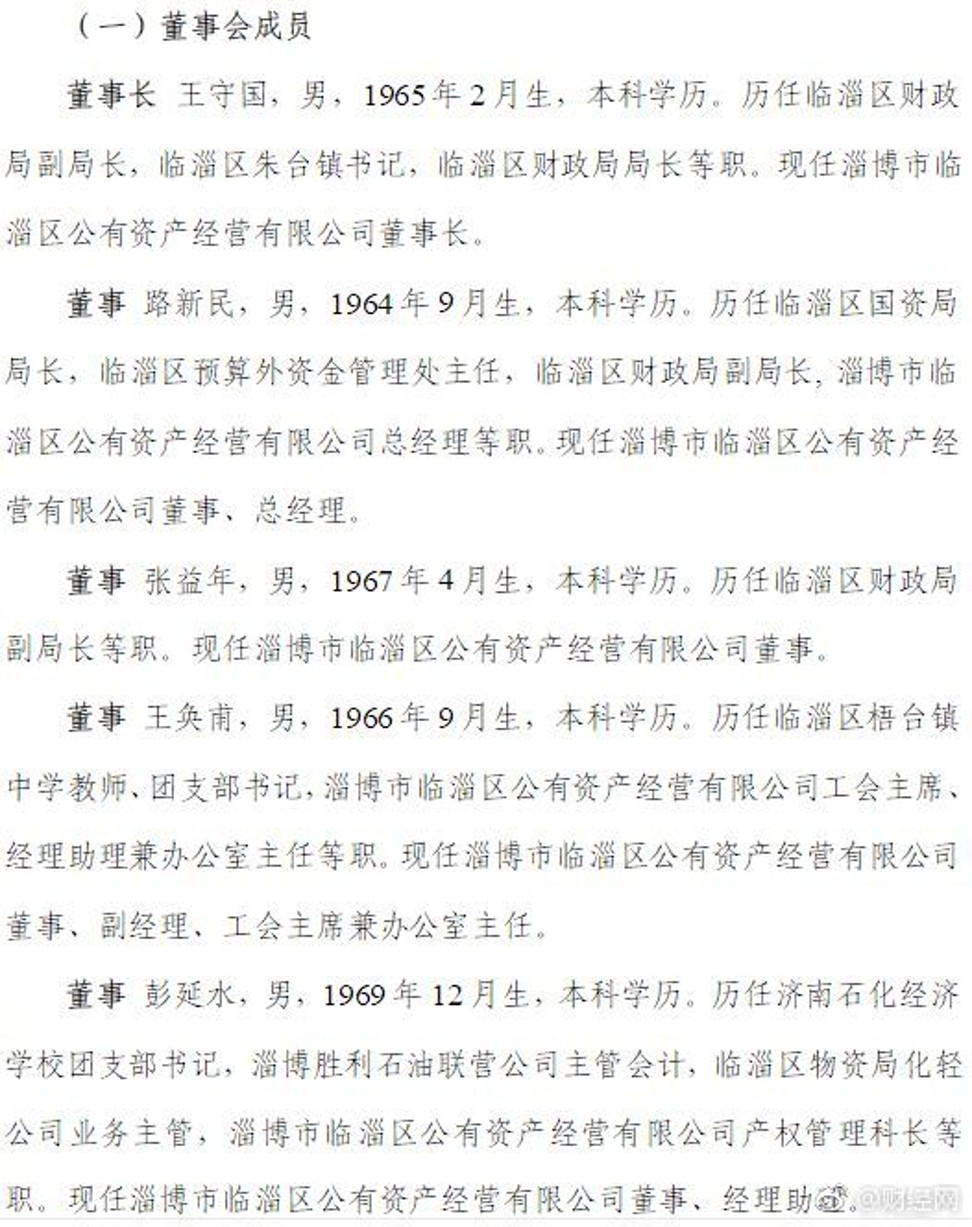
Chinese city turns spotlight on young high-flyers who took over reins of US$29 million company
- Chairman of Public Assets Operation Company had humble roots in accountancy practice, while colleagues quickly moved from modest beginnings to boardroom
Authorities in eastern China have launched an investigation into the appointment of young executives at a state-owned enterprise after questions surfaced online about their youth and qualifications for the roles.
The Sina Weibo account of the government of Linzi district in Zibo city, central Shandong province, said on Sunday that municipal investigators would look into the running of Public Assets Operation Company after it emerged that its executives were in their early or mid-20s when they took up the high-powered roles, appointments that prompted public comment.
Linzi government did not make any other comment on the matter.
What does Xi-dominated ‘opening up’ exhibition say to private firms?
Public Assets Operation Company, wholly-owned by the district government, was established in 1995 with registered capital of 200 million yuan (US$29 million). Its business is infrastructure construction and land development, The Beijing News reported.
In October, a company sales prospectus listed the personal details of senior management, the report said.
Chairman Zhang Haigang, who was born in 1988, was 27 when he was appointed by the local authority. Two other executives, Guo Hongkun and Chen Mingyang, who were born in 1991 and 1992 respectively, were 24 and 23 years old when they joined the board.

Zhang’s highest academic qualification is from a three-year college programme. He worked as a clerk at an accounting firm between 2010 and 2013 before joining the finance department of Public Assets in 2014. He became chairman at the end of 2015, the report said.
Guo has a bachelor’s degree. He started working at the company as a project assistant in November of 2012 and joined the board three years later.
Chen joined the company as a project assistant in July 2015 and four months later, he was appointed as a board member.
Beijing invites foreign firms to buy into state-owned enterprises
The report said the company’s supervisory board involved people who were born in the late 1980s or 1990s. Supervisory board chairman Chen Haiying was born in 1998 and member Cao Li was born in 1992.
All these executives were promoted at the end of 2015 to replace a management team, most whom were born in the 1960s or early 1970s.
The case is similar to one in Xian, the capital of Shaanxi province, where an SOE with more than 100 billion yuan in assets and managing the city’s hi-tech zone appointed three women – 34, 25, 23, respectively – as chairwoman and board members although they were formerly account clerks with no management experience.
Beijing directs state firms to ‘copy normal enterprises’ after complaints
It was understood that Xian government issued an order forbidding government officials to hold a position in business from the middle of 2018, and the company later named the account clerks as nominal holders of those positions.
Details of the appointments of the three women were made public last month, raising questions among internet users and prompting authorities in Xian to suspend the three and start an investigation.


